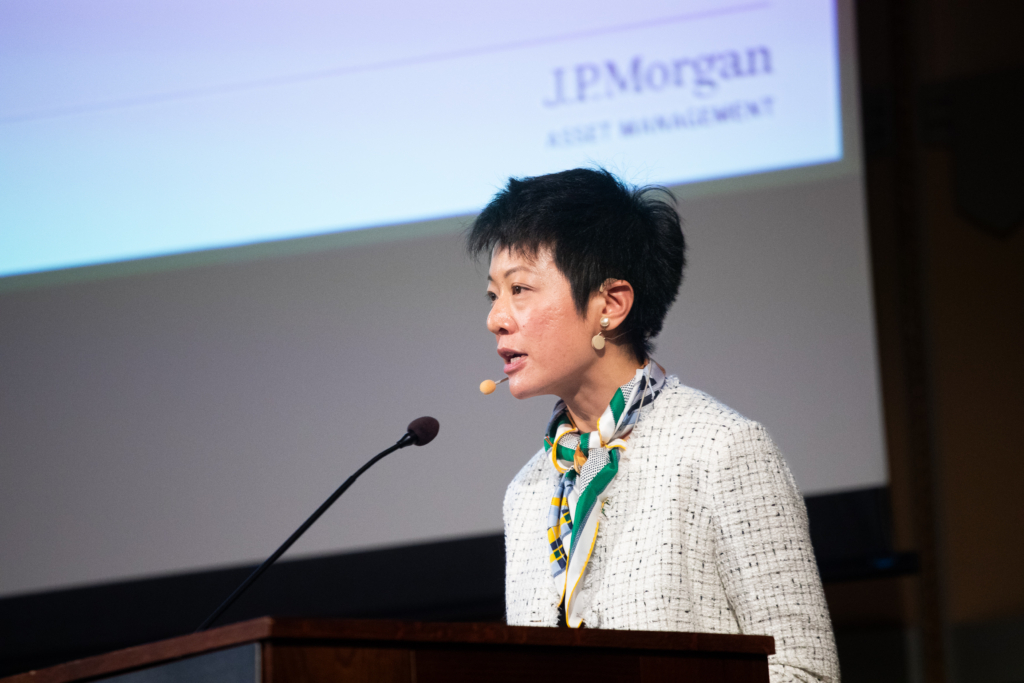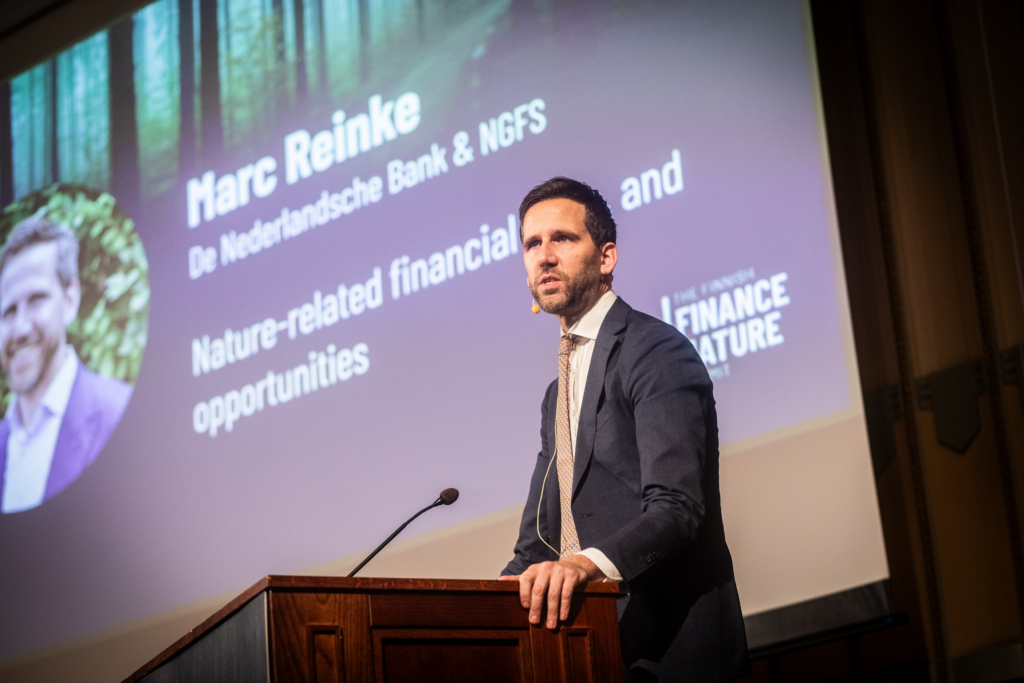The new role of the financial sector is to steer financial flows in such a way that corporate operations enhance rather than degrade biodiversity. There are also many new business opportunities in nature positivity. This was the key message of the Finnish Finance Nature Summit, held in Helsinki on Monday.
“While the financial sector has traditionally focused on profits and growth, ultimately it is the well-being of life on this planet that matters more. The financial sector has a responsibility to promote biodiversity, and we can set an example for others,” said Arno Ahosniemi, CEO of Finance Finland, who opened the event.
Finance Finland , which represents banks, pension companies and insurers, among others, said at the event that the industry is committed to international nature goals.
The Finnish Finance Nature Summit, held at Pörssitalo, the Stock Exchange Building, in Helsinki, brought together Finnish and international finance leaders and policymakers. The summit was jointly organised by the Finnish Innovation Fund Sitra, Finance Finland and the Confederation of Finnish Industries.
“All economic activity is ultimately based on ecosystem services, so it pays for businesses to nurture them. Lessons can be learned from climate action, which has become mainstream in many industries,” said Jennifer Wu, Global Head of Sustainable Investing, at J.P. Morgan Asset Management.

Ecosystem services are the services that nature provides to humans, such as clean water, raw materials, energy and pollination.
According to Wu, interest in nature and biodiversity has grown markedly in the investment community over the past 12-18 months. This interest is being driven by the need to secure business conditions and new nature-positive business opportunities. Nature-positivity means that activities enhance nature rather than degrade it.
“A good place to start is in sectors where human activities have a high impact on nature. These include agriculture, forestry, health, food processing and tourism,” said Wu.
Biodiversity loss increases credit risk for banks
The global loss of biodiversity has increasingly gained attention, especially since the UN Conference on Nature in Montreal in December 2022. Nearly 200 countries agreed on targets to halt biodiversity loss by 2030. At current rates, an estimated one million species are threatened with extinction in the coming decades.
Biodiversity loss is also a fundamental issue for the economy. In 2021, the Dasgupta review, commissioned by the HM Treasury in the UK, raised public awareness that our economy is entirely dependent on nature and the resources and services it provides. This natural capital is now dwindling as we consume nature faster than it can regenerate.
Halting the loss of biodiversity will require drastic action across many sectors. Financial actors such as banks, investors and insurance companies have an important role to play in promoting nature-positive business by channelling finance to companies.
Marc Reinke, Head of the Sustainable Finance Office at De Nederlandsche Bank (DNB), pointed out that promoting nature’s resilience should be part of banks’ risk management.
“Now almost 75% of bank loans go to companies that are highly dependent on natural ecosystem services. So ecosystem degradation means increased risk for the lender.”
Reinke said that the goal should be a carbon-neutral society that lives in harmony with the natural world around it. Central banks have a crucial role to play in this transformation, he said.

Saving a river pays off in Germany
The Nature Summit also offered concrete ways for companies to take action to make their business nature-positive. New tools are available. For example, the Taskforce on Nature-related Financial Disclosures (TNFD) framework is a guide to help companies assess and report on the nature-related impacts, dependencies and risks of their business operations. It also identifies opportunities for business that benefit nature.
“High-quality data is needed to make negative and positive impacts visible. It takes effort, but you don’t have to do it all at once. The main thing is to start the process,” encouraged Emily McKenzie, Director of TNFD.
Sitra has also decided to start reporting its investment activities in line with TNFD recommendations from the 2024 financial year. It is also developing a project to promote the adoption of TNFD in the financial sector in Finland.
Eila Kreivi, Chief Sustainable Finance Advisor at the European Investment Bank, said that around 70% of companies depend on wood, water, sand, pollinators or other ecosystem services. That’s a good reason to pay attention to the impoverishment of nature. Eila Kreivi also gave a positive example of what happens when natural assets are restored.
“In Germany, the Emscher River looked like an open sewer ten years ago when factories and cities dumped their waste into it. Now the river has been restored, and the riverside is attracting new residents again. Up to 40 000 new jobs have been created thanks to the river’s regeneration.”

A model for climate action
Jyri Häkämies, CEO of the Confederation of Finnish Industries (EK), said that 55% of the organisation’s member companies believe that biodiversity loss is already having an impact on business. He said companies need help and cost-effective tools to measure their impact on nature. They can help turn a problem into an opportunity.
“In the case of climate change mitigation, the sector has already seen how effective Finnish companies are and how they have found new business. The same can now be done for biodiversity.”
MEP Ville Niinistö (Greens), who participated in the panel discussion, brought a legislator’s perspective to the discussion.
“At the moment, regulation encourages companies to destroy rather than protect nature. But legislation can also be sustainable and create entirely new markets and new business. Recycling is a case in point.”
The presentations at the summit suggest that there is still much to be done to halt the loss of biodiversity. There seemed to be a consensus on one point: nature, or natural capital, is a vital asset that needs to be taken care of.
Read more:
New framework helps private sector address nature loss – 7+1 things you should know about the TNFD
Five reasons why companies should set science-based targets for nature
Sitra memorandum: Nature safeguards our economy
12 Nature steps for companies – strengthem your business with nature action (pdf)




















Recommended
Have some more.